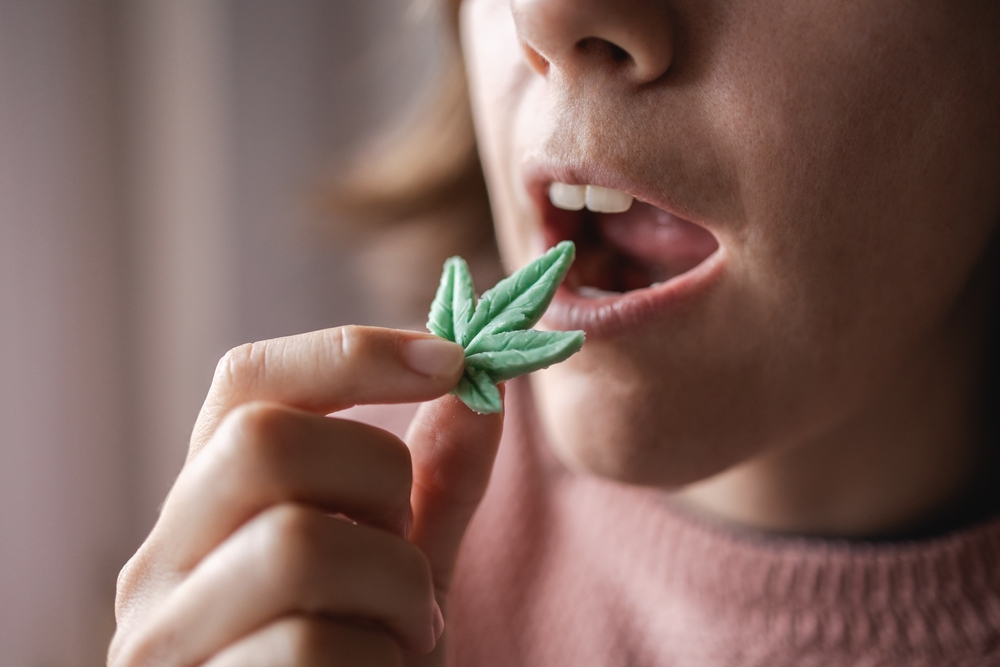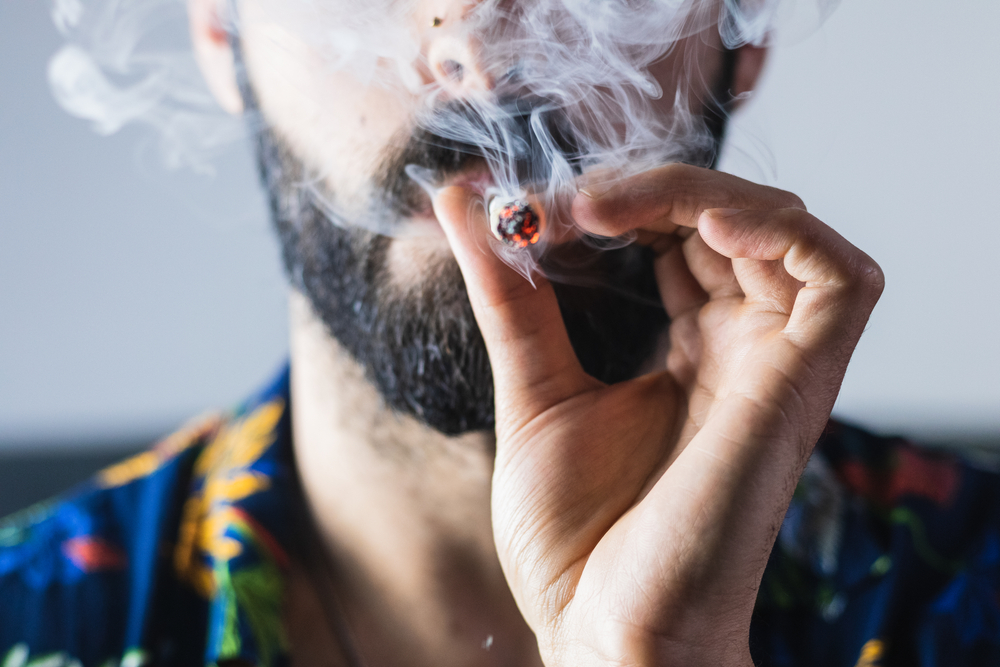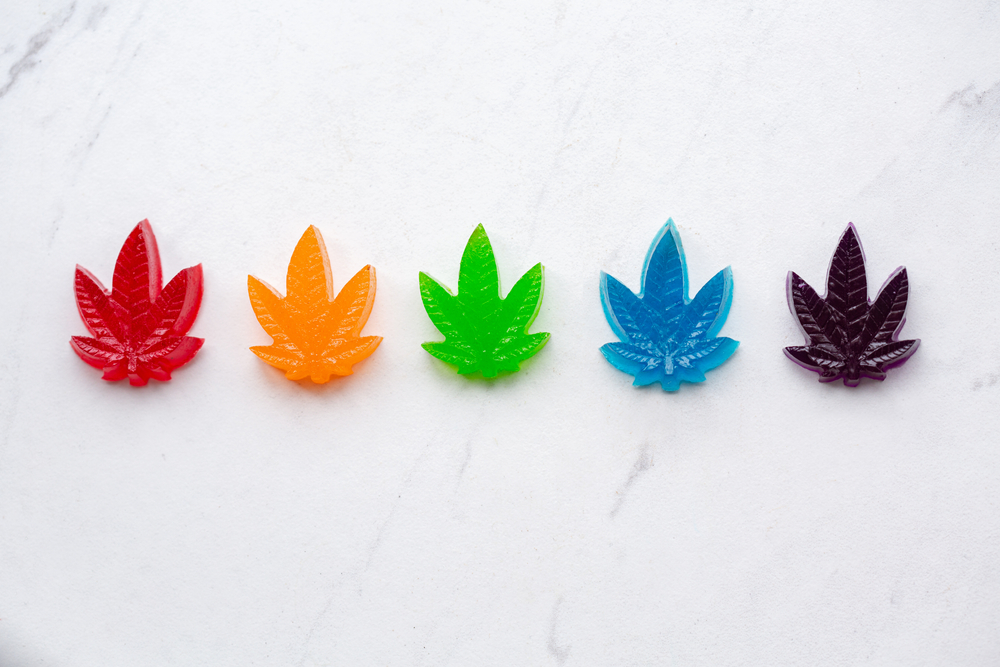Cannabis
11-Hydroxy-THC – Why Are Weed Edibles Stronger?
11-Hydroxy-THC sounds like THC, but its similarities with the high-inducing chemical end there.
We’ve all either had a bad experience with edibles or know somebody that has. It happens to the best of us – we eat an edible, it takes longer than we’d like to get high, so we down another dose and then all of a sudden, we’re greening out and having an all-around bad time.
Today, we’re going to take a close look at what could be the most likely culprit behind these effects, what role 11-Hydroxy-THC plays and how it affects the edible experience.
If you find cannabis edibles intimidating or have had negative experiences with ingested cannabinoids, we’ll also cover some ways to avoid consuming an edible dose that may be too much.
What is 11-Hydroxy-THC?
11-Hydroxy-THC, which is also called 11-OH-THC, is a chemical compound called a metabolite created when THC crosses the blood-brain barrier and begins to be metabolized or broken down.
11-OH-THC is the primary active metabolite of THC, which means it is only created as a by-product of the liver’s metabolism process and can only be formed when carboxy THC is consumed.
How Does 11-Hydroxy-THC Affect Edibles?

Does eating weed get you higher? It just might.
Current research on THC and its effects on the body theorizes that the increased potency from edibles is created when our bodies metabolize or break down the THC.
In a process known as first-pass metabolism, our digestive system transforms the THC into an entirely different compound: 11-Hydroxy-THC (11-OH-THC).
One study put traditional THC up against 11-Hydroxy-THC in low-dose intravenous administration. The results showed that the users given 11-Hydroxy-THC experienced a much higher level of psychoactive effects despite the low THC levels.
The oral administration of THC allows the liver and GI tract to create higher levels of 11-Hydroxy-THC, which are then absorbed directly into the bloodstream to produce the full effects of the cannabinoids obtained from the edibles.
Is 11-Hydroxy-THC The Reason Cannabis Edibles Hit So Hard?
While the research that has been conducted so far is encouraging, more research and clinical investigation are needed into the physiological effects of 11-Hydroxy-THC alongside other cannabinoids.
One of the reasons that cannabis consumers feel that 11-OH-THC may be responsible for a more intense high after cannabis ingestion is that once it’s in the blood and the brain, it can make the effects of the edible last so much longer than the usual effects of smoking.
How High Is Too High?
If you have been a cannabis consumer for any length of time, you’ve almost certainly heard of or maybe even witnessed a friend get too high. This can be compounded by the extended duration of the effects of edibles.
Sometimes, you just miscalculate, and the potent chemical effects of 11-OH-THC take you by surprise. For users who enjoy potent indica strains’ impact on the body, a few too many brownie bites won’t harsh their buzz.
However, for those that prefer sativas or who just like to remain in complete control of their body during the session, it can be tough to cope with the effects of being overfed with THC goodies.
Are You Too High?
If you or someone in your circle has crossed the line from perfect to panicked, the main thing to remember is that it will pass.
Feelings of extreme drowsiness, couchlock, lack of focus or attention, and feelings of anxiety or panic at the strength of the effects are not rare, but they are temporary.
Get them a caffeinated beverage, and go out for a leisurely walk. The caffeine should help them shake off the sleepies, and the walk will increase their blood flow which can help the liver process the THC and 11-OH-THC quicker.
Preventing Overindulging In Edibles
To those who might be new to cannabis use in general, the experience of taking edibles can produce far more intense effects than when they inhale cannabis.
Sometimes, the psychoactive effects on the human body from a single cannabis edible can be so strong they can make the consumer feel uncomfortable or even panicked if they aren’t used to them.
While the desire to enjoy cannabis edibles may still be strong in cases like these, tokers should exercise some caution and moderation, followed by some basic dosage guidelines. Here are some tips to avoid getting too
- Don’t eat edibles when you’ve already been smoking. The appetite stimulation that the cannabis plant creates can set you up for a wild ride.
- Start small. Take a small dose of a few milligrams to start. THC gummies or candy are great since many individual pieces will be 5-20mg. Commercial products should have the dosage per package listed.
- Patience is a virtue. Too often has someone unfamiliar with edibles, or just plain cocky, taken one too many brownies or space cakes and regretted it. Edibles can take up to 2 hours to kick in sometimes, so give yourself at least that long between doses.
- Don’t forget how long they last. Sometimes edibles can stretch your psychoactive experience for at least 4 hours after kicking in, and 6 hours isn’t uncommon. Take this into account when planning an edible THC binge because once your liver starts pumping out those sweet, sweet 11-OH-THC molecules, there’s no turning back.
Is 11-Hydroxy-THC Also Created When You Smoke Cannabis?

Is 11-Hydroxy-THC also created when you smoke weed?
Well, yes and no.
Weed flower that has been dried and cured won’t technically have any THC at all. Instead, it has THCA, the acid form of THC. While THCA has its own list of benefits, it won’t get you high at all. To get high off weed, the THCA within your favourite bud has to undergo a process known as decarboxylation.
While this sounds difficult, decarboxylation is something you do every time you smoke a bowl, light a joint, or take a dab.
Decarboxylation is the process of applying heat and smoke to THCA to remove its carboxyl group. Removing the decarboxyl group transforms it into good ol’ THC, the compound we want when we’re looking to get high.
So, does this mean that 11-OH-THC is created when we smoke weed? Well, we smoke THC, and it enters into our body; our body still has to metabolize it to get rid of it.
Eventually, our liver does get around to metabolizing it, and as a consequence, 11-Hydroxy-THC is created, but in less dramatic amounts than edibles. After all, a joint with one gram of weed only has about 3mg of THC!
Which Gets You Higher? Smoking Cannabis or A Cannabis Edible?
Well, as cliche as it may sound, that will depend on you.
THC metabolism is different in just about everyone, just as your normal metabolism is highly unique to your body. While it may come as a disappointment, there is no clear winner yet.
Many find they get higher from smoking. There is a good chance that this will depend on how their liver creates and processes 11-OH-THC. These users also often find that the effects of cannabis inhalation are easier to manage since they have a shorter duration, which leads to them naturally preferring cannabis flower. Some tokers even ask “why don’t edibles get me high?” proving that not every edible consumer can have the same experience.
On the other hand, those who tend to smoke more heavily or have a higher cannabis tolerance might find that they can feel the potent effects on their body more noticeably when they ingest it.
While they are still ingesting THC, eating it sends a higher level of the precious 11-OH-THC metabolites from the liver, which theoretically boosts and extends the effects of the THC.
11-Hydroxy-THC – Essential For Edibles
While it looks, so far, like 11-Hydroxy-THC is largely responsible for how our systems interpret and respond to the effects of a wide range of cannabinoids, including THC, the studies just aren’t plentiful enough yet.
While this may leave some with uncertainty, there is a bright side. This is an excellent opportunity to perform some of your own cannabis testing “studies” to see if you can get some personal anecdotal data. You know, for science!

